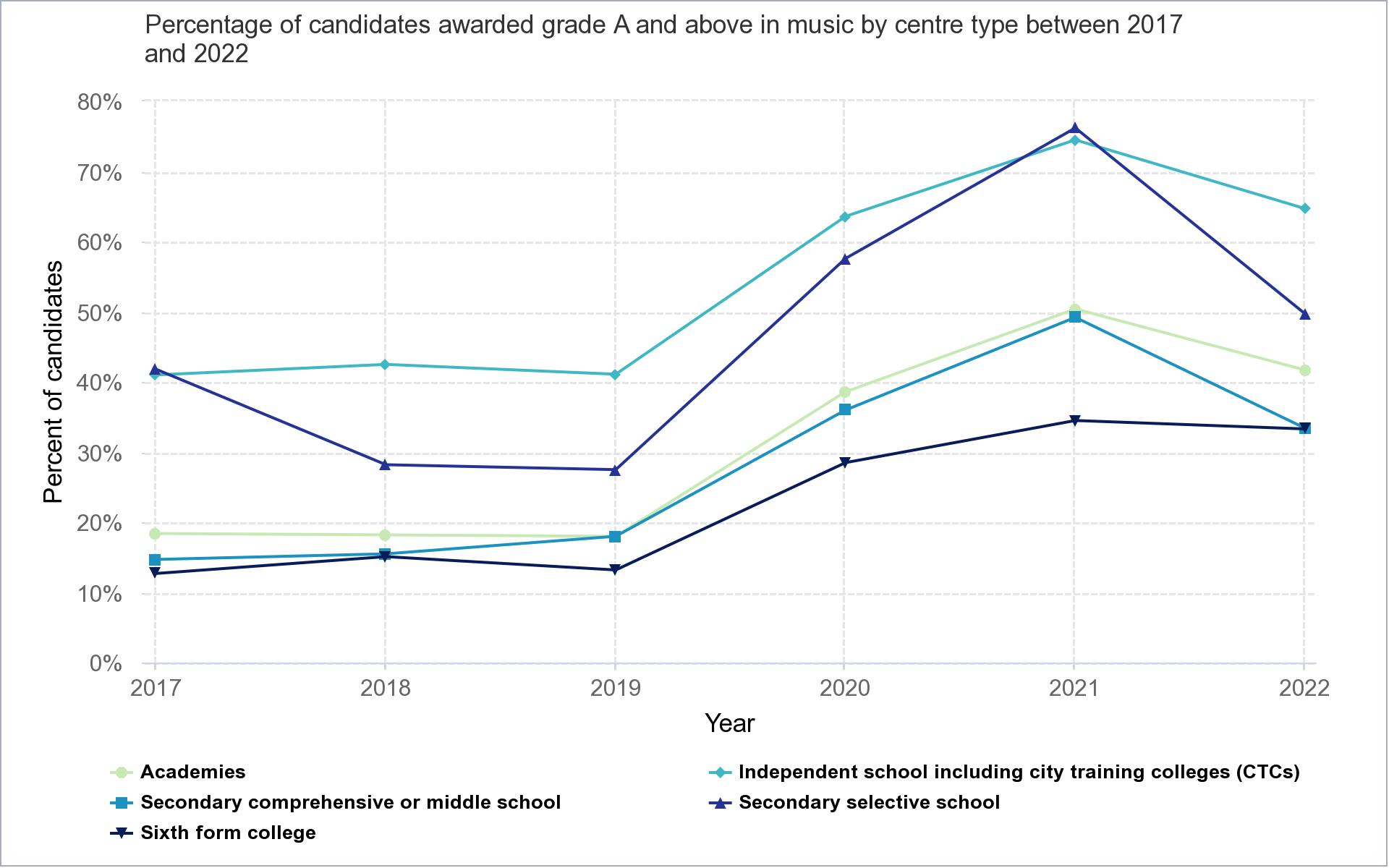
Sixty-four per cent of students taking A Level Music at an independent school achieved an A or above this year, compared to 33.4 per cent of students in secondary comprehensives or middle schools.
This represents a gap of 31.3 percentage points, which is higher than the gap recorded in 2017, 2018, 2019, 2020 and 2021.
There were 179 independent schools (including city training colleges) entering students for A Level Music this year, compared to just 69 secondary comprehensives, although schools in this category are reducing generally as more schools are academised.
Academies, which are state-funded but are independent from local authorities, fell 22.3 percentage points below independent schools this year, with 41.7 per cent of students achieving at least an A. There were 226 academies with A Level Music entrants.
Secondary selective schools recorded the second highest percentages of candidates achieving an A or above in music. 49.7 per cent of students in 30 selective schools were awarded top marks.
In 2021, selective secondary schools performed better than independent schools, but this dropped dramatically this year, with 49.7 per cent of candidates in selective secondaries achieving at least an A.

Ofqual
In 2019, the last time exams took place, academies and secondary comprehensives were evenly matched, with both centre types seeing 18 per cent of students achieve A-A*.
Overall, results are higher this year than in 2019, but have dropped back down after unusually high grades were awarded in 2020 and 2021. This is part of a planned ‘transition period’ to bring grades back down to pre-Covid levels.
A recent report from the ISM found that the mean yearly budget in maintained schools (state) was £1,865, in academies and free schools it was £2,152, and in independent schools, it was £9,917.
Deborah Annetts, ISM chief executive said, ‘Congratulations to all students receiving their A-level music results today, I hope that your hard work is reflected in the grades you receive.
'ISM research has shown that private schools value and invest in music education because they appreciate the benefits that it brings to a student’s education. The refreshed National Plan for Music Education must ensure that all students in every school receive high quality music education, which would bring this gap down.’








